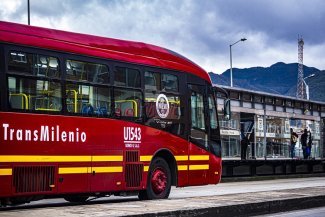The Mozambican crisis has tested the new development finance paradigm and its emphasis on private capital as key source of financing for development.
Mozambique’s default on US$2 billion worth of commercial loans has triggered the latest – and arguably most shocking – African debt crisis in recent times. While nearly all African countries suffer from low commodity prices and rising credit costs, the Mozambican case is unusual in that it reveals how easily the new development finance paradigm, centred on private capital, can go wrong.
The successful attraction of commercial loans did not boost Mozambique’s development; it caused a development disaster. This debt crisis also underlines the fact that the current global governance regime has no effective mechanism in place to prevent irresponsible lending and borrowing - or to deal with the consequences. It also underscores the urgent need to get rid of these illegitimate debts, which will continue to strangle Mozambique’s economy and society until effective action is taken.
It’s still not fully clear what happened to the US$2 billion in commercial loans that were organised for Mozambique by the London branches of private banks Credit Suisse and Russia’s VTB Capital, but even the tip of the iceberg looks incredibly dirty.
The official purpose of the loans was to purchase naval equipment and a tuna fishing fleet. However, the money never reached Mozambique, because the banks sent it straight to the contractor...after keeping a significant percentage in fees and commissions for themselves, naturally.
Despite the fact that the borrowers on the Mozambican side were firms registered under private law (ostensibly controlled by the secret service) the loans received a government guarantee. However, local watchdogs such as the Mozambique Budget Monitoring Forum have questioned the legality of this process.
In any case, the approval process side-lined the parliament and the loans were initially kept off the books, misleading not just Mozambican citizens but also foreign donors and IMF monitoring.
A audit report by Kroll, prepared for the Office of the Public Prosecutor of Mozambique, finds that Credit Suisse initially “imposed a number of ‘preceding conditions’ that needed to be met before it would approve the loan financing, including the requirement to have the loan agreement approved by the Bank of Mozambique and checked by the Mozambique Administrative Court and that the ‘operation’ needed to be reported to the IMF”. But these conditions were quietly dropped, perhaps because it became clear that the profitable deal would not go ahead without the loan being approved by these bodies.
As to how the money was actually spent, the audit report finds that goods and services, mainly boats, were overpriced. It was also revealed that these items never became operational, and that the whereabouts of a substantial share of the money could not be traced at all. As a result, Mozambique has been left with US$2 billion of extra debt and no benefits to be seen.
Debt crisis by surprise
When the secret loans were unveiled last year and added to the government accounts, it raised Mozambique’s debt ratio to an unsustainable level. It also increased the proportion of expensive commercial debt, and consequently the amount of money that the government needs to find in order to repay the loans on time.
Even if the money had been spent properly, Mozambique would have faced significant repayment challenges. The loan sum of US$2 billion, disbursed at an annual interest rate of more than 7 per cent, is more than half the government’s annual budget of US$3.7 billion. Even without any leakages and irregularities the loan conditions would have drained Mozambique’s scarce resources for years. A default in 2023, when the largest instalment was due, would have been almost unavoidable unless Mozambique had managed to rollover the loan or mobilise substantial additional financial resources from new natural resource extraction.
Obviously, the fact that some of the money has disappeared and the rest has been wasted implies that repayment is even less likely to happen. In early 2017, Mozambique defaulted on all three loans. Suspension of payments implies that the loans are, for the time being, no longer a drain on the budget, but the challenge remains of how to legally get rid of the outstanding debt – and, of course, how to prevent such cases in future. Clarifying this is essential as the Mozambican case could be a sign of things to come.
The Mozambican crisis has tested the new development finance paradigm and its emphasis on private capital as key source of financing for development.
Crowding in private investment is the central approach of the “from billions to trillions” approach that the IMF and the six multilateral development banks are advocating to finance the sustainable development goals. The World Bank has recently released a so-called ‘cascade model’ that puts attracting private investments first. The mobilisation of private finance is also central to the new European Consensus on Development and the European External Investment Plan.
No development, just disaster
Mozambique, a country that for decades featured on the list of the world’s most aid-dependent countries, successfully managed to attract private capital from creditors such as Credit Suisse and VTB. Thus it complemented the scarce Official Development Assistance (ODA) resources it receives with substantial amounts of commercial loans at market rates. Logically, everyone from Washington to Brussels should cheer.
However, the result has been a disaster: no demonstrable additional development impact; a debt crisis caused by commercial loans; and an accompanying macroeconomic and public finance debacle. Credit rating agencies have downgraded their ratings for Mozambique, making future borrowing more expensive for the government as well as subordinated private borrowers. The IMF is developing a new adjustment programme that is likely to further reduce Mozambique’s fiscal space to invest in areas relevant for achieving the Sustainable Development Goals.
Official donors have temporarily suspended aid payments and particularly budget support, which are essential for sustaining public service provision.
Rather than supplementing ODA, the commercial loans that Mozambique took out will, due to the inherent repayment conditions, absorb future aid payments. Thus, European aid will become a revenue stream for the benefit of Credit Suisse’s and VTB’s wealthy clients.
The Mozambican government may in the future be forced to use ODA to finance the debts when creditors sue for full payment. Unless, of course, the illegitimate debts can be cancelled.
The debt was contracted in stark violation of international standards such as the UNCTAD Principles on Responsible Lending and Borrowing. Unfortunately, the UK government (the loans are formally under English law), along with other European governments, have thus far failed to translate these principles into codified law, which makes the outcome of any related lawsuits highly unpredictable at this stage.
These same governments also sabotaged attempts to create a multilateral debt workout mechanism at the United Nations which would take illegitimacy criteria into account, as civil society organisation have advocated for for decades. As a result, the burden is likely to fall on the Mozambican citizens, not to mention taxpayers in Europe and elsewhere who fund public aid budgets, while dodgy investors celebrate with a big aid-funded party. In future, our European governments must do better when it comes to putting essential institutions in place. Until then, these and other illegitimate loans must be cancelled.










